- California Assembly OKs highest minimum wage in nation
- S. Korea unveils first graphic cigarette warnings
- US joins with South Korea, Japan in bid to deter North Korea
- LPGA golfer Chun In-gee finally back in action
- S. Korea won’t be top seed in final World Cup qualification round
- US men’s soccer misses 2nd straight Olympics
- US back on track in qualifying with 4-0 win over Guatemala
- High-intensity workout injuries spawn cottage industry
- CDC expands range of Zika mosquitoes into parts of Northeast
- Who knew? ‘The Walking Dead’ is helping families connect
Why being an Asian American female in entertainment can be an advantage
By Grace Jung
Earlier this spring, I participated in a talk alongside two other panelists at Barnard College for Columbia University’s Asian Pacific American Heritage Month. The talk centered around being an Asian or Asian American woman filmmaker, and joining me on the panel were Eunice Lau — Singaporean director and colleague for “A-Town Boyz” — and Hye Yun Park, a Korean American comedian, writer, filmmaker and creator of the excellent comedic web series “Hey Yun”.
It was an intimate event with approximately 30 people in attendance. We answered a number of questions but the question that provoked me the most was, “As Asian or Asian American women filmmakers, do you face any barriers?”
The question was rhetorical and fished for an answer to begin as, “We Asian American filmmakers face barriers such as…” but the thing is, as a Korean American woman, I believe I have a leg up in any creative field.
To quickly satisfy the question at hand, though, there are the two obvious barriers we women of color face on a macro-level: Jane Hyun has discussed the “bamboo ceiling,” as has Wesley Yang, and many feminists have written on the “glass ceiling” since the 80s. Asian and Pacific Islander (AAPI) women in America, according to mainstream assumption, are bound to face both.
Numerous scholarly journals, news stories, blogs and other written sources have covered the topic of being an Asian American woman and the various challenges we face ranging from micro-aggression to larger, more complex issues stemming from a history of colonial repression/rape/dislocation an oppression stemming from what bell hooks calls “white supremacist capitalist patriarchy.” These topics have been written about and re-written about and must continue to be. While I participate in the discussion revolving around said issues daily, what I wanted to discuss that evening with the young women and men in attendance were the advantages we have as AAPI-American women in the film industry.
As a woman and as a person of color, I’ve been subject to numerous discomforts in my life beyond these neatly identified ceilings.
There are the two main types of oppression to deal with, but my background also contains a range of other barriers on a psychological and emotional level. For instance, I come from South Korea, so I also deal with pressures of U.S. cultural imperialism/assimilation, the knowledge of a split home country due to differing ideologies of Western forces following World War II, the guilt and shame of North Korean civilians’ pain living in tyranny and poverty, the guilt and shame of listening to fellow Americans use North Korea as the butt of many jokes, the still very thick cloud of Japanese colonialism that continues to hurt the Korean psyche, and as of late, the alarmingly high suicide rate in Korea and worrying about my family and friends who live there and have openly claimed unhappiness with their own lives, if not witnessed suicides of colleagues at their workplace or in their personal relationships.
I’m very familiar with sexism, racism and the abuses that stem from both forms of discrimination. I am also familiar with those subtle yet lead-heavy questions that uninformed individuals bring up when they ask where my place of origin is or what kind of food my mother cooks or even worse, unsolicited remarks on how awesome kimchi is, or still worse, how lovely Japanese aesthetics are — random remarks directed at me simply because of how I look.
On a micro-level, I understand the difficulty of poverty and immigration. Neither of my parents are college educated. My father didn’t graduate high school. My parents grew up on the farms of Gyeongsang-nam-do. My brother and I were born in Busan before we moved to Brooklyn in 1992. My father drove a van selling wholesale T-shirts with cartoon characters that infringed on the copyright of Disney and Warner Bros. His van was frequently robbed in broad daylight on the streets. My mother tried the nail salon thing but hated touching other people’s hands and feet, so she learned how to drive the van, too, and began helping my dad at work. Whenever he stepped into a retail store like Jimmy Jazz to take care of business, she guarded the van to avoid parking tickets. My mother was 29 years old when we moved to the U.S., and my father was 35. They had two mouths to feed and the family shared a one-bedroom apartment in Bay Ridge. My brother and I slept on bunk beds in the living room and attended public school. In my first grade class photo, I’m the only girl wearing old, beat up sneakers paired with a hand-me-down dress.
In addition to a working class immigrant upbringing, I struggled through years of anxiety and depression, which stem from separation anxiety at an early age. I was frequently left at relatives’ homes between the ages of two and five, and after moving to the States, from ages five to eight, I was constantly left in the care of babysitters, if not at home by myself. From ages eight and up, I figured out how to pick up my brother after school and walk or take the bus home to have a snack and do my homework on my own until my parents came home in time for dinner around 7 or 8 p.m.
When Roberto Benigni won an Oscar for “A Life is Beautiful,” he thanked his parents for the “gift of poverty,” and it was hilarious because we all have some understanding of what deprivation is like. The thing about these pains and barriers is that they’ve given me the gift of compassion — something I was not born with but grew to develop out of experience.
What I suffered as a result of force of circumstance and barriers has made me empathetic, which has made me a better listener, which helps me feel more compassion for others in pain. Being a good listener has made me an effective communicator. When I came onboard to produce “A-Town Boyz” in 2012, I felt for Atlanta’s young Asian-American men who openly spoke on their pain, shame and anger. I felt for their parents who spoke on the pain they unintentionally inflicted upon their children because they had no choice but to work long hours and come home feeling strung out, and the regret they now live with for not having been able to be more emotionally available to their children. I felt the anger, sadness and confusion that all parties felt, and I was able to do so because I had been there, too.
Having a full understanding of what discomfort and aloneness is like — knowing full-well what it’s like to know two languages but still feel mute because there was no language that years of public schooling has taught me to express the discomforts of micro-aggression inflicted on me by school children, teachers, strangers on the street, bosses at jobs, friends at dinners, past relationships, etc., having been assigned books written only by old white men, e.g., The Old Man and the Sea, The Great Gatsby and The Lord of the Flies, having watched TV shows without any faces that look like mine (yup, I tuned into All American Girl when I was a kid and when when it was taken off the air, my mother had me write a letter of comfort and encouragement to Margaret Cho in Korean because at the time, Korean was the only language I knew how to write in, although Cho herself has said she cannot read in Korean) — and having dealt with identity oppression, shame and confusion all my life, I empathized with the subjects of our film on all the different levels they spoke of, and I believe that helped me to be a better producer on this set.
When it comes to the question of barriers, I’d rather we discuss possible solutions: if you see one, punch through it; if you can’t, turn your head in another direction, establish that space as your own and build something new there; create something that hasn’t been done before; see something different, and you most likely will, because you’ve been treated as an outsider, and as an outsider, you have the gift of new perspective; react against the forces that doubted you or turned you down by producing something that contains your voice. Not having any role models means you can be a pioneer; develop something completely original, and bring viewers onto a terrain that has never been walked on before. Be an originator. Or maybe not. Maybe you’ll find people who grew up just like you and you’ll find them on that path towards something else. You can collaborate with those individuals because you’ll speak the same language and communicate from the same place. How wonderful. You’ve made a friend. Become a community.
There are lots of women who’ve already broken down the countless barriers that contain us, and they continue to. The one big name that comes to mind right at this moment is bell hooks, who transformed the feminist dialogue by championing the black feminist’s voice in a realm that was dominated by class and race privileged members of her time — a tremendous contribution to race and gender studies.
When it comes to entertainment, many Asian American female comics (e.g. Kristina Wong, Hye Yun Park and Margaret Cho) blend comedy and sexuality in their performances, because as film scholar Celine Parreñas Shimizu of University of California, Santa Barbara states in her book “The Hypersexuality of Race: Performing Asian/American Women on Screen and Scene”: “Asian Americans are overdetermined by an excessive and perverse sexuality, [and so] Asian American women filmmakers find the language and subject of sexuality necessary to their expression. As filmmakers, whether by accident or on purpose, we engage sexuality in order to transform established representation and create subjectivity in terms that demand recognition.”
If it weren’t for witnessing the work of such contributors, I wouldn’t feel as confident stating that suffering leads to greater empathy and compassion, which leads to more creativity and greater potential for building bridges beyond and across barriers.
As long as the empathetic and compassionate artist expresses herself honestly, the audience will understand what she’s trying to convey, and they will relate because suffering is common throughout humanity beyond whatever barriers. Through this lens of recognition, artists who just so happen to be Asian American and female can connect with audiences everywhere and most especially here in the U.S. So, for the women who face “barriers” and sit in suffering because of them, just know that this is part of the process, and that you’ll arrive at wherever you’re trying to get to.
Over the years, there have been many amazing women who worked to dismantle said barriers. It’s just a matter of recognizing their work and continuing the discourse from where they left off in order to progress the dialogue and push for more change. Yeah — it’s totally a revolution. The only kinds of people who are fit to be part of a revolution are the ones who have a full understanding of what oppression is like and can envision a radical change beyond the barriers.
There are many more smaller forms of oppression (barriers) and pain — unidentified and lingering inside your brain, muscles, bones and subconscious. Use these pains as information, insight and access into another’s pain, and find a way to connect. Empathy and compassion can lead to tremendously relevant creations. Write a paper, have a meaningful conversation, paint a picture, write a story, perform something, direct something, engage with your community somehow; as long as you channel what you experienced openly and honestly, you’ll always have an audience that understands you and is grateful to you for processing one more fragment of pain that was floating through this world. This kind of union between you and the audience is possible in part thanks to the compassion you’ve developed as an Asian American woman who has faced numerous barriers.
Grace Lee Boggs said, “A revolution that is based on the people exercising their creativity in the midst of devastation is one of the great historical contributions of humankind.” As a result of the life you lived, and the suffering you were up against and have overcome, you’re able to have an innovative and universal dialogue with the world. What greater gift of impact is there than that? To all Asian American women in the arts facing barriers: Lucky you. Brace yourselves for big things to come.
-
Grace Jung is a New York writer and filmmaker. She is the author of “Deli Ideology” and producer of feature documentary “A-Town Boyz.” Her translation of Lee Cheong-jun’s “The Abject” (벌레 이야기) is forthcoming at MerwinAsia Publishing. She is currently developing her first feature narrative and writing her second novel. She is a former Fulbright scholar and currently pursuing a master’s degree at UCLA. Follow her on Twitter.







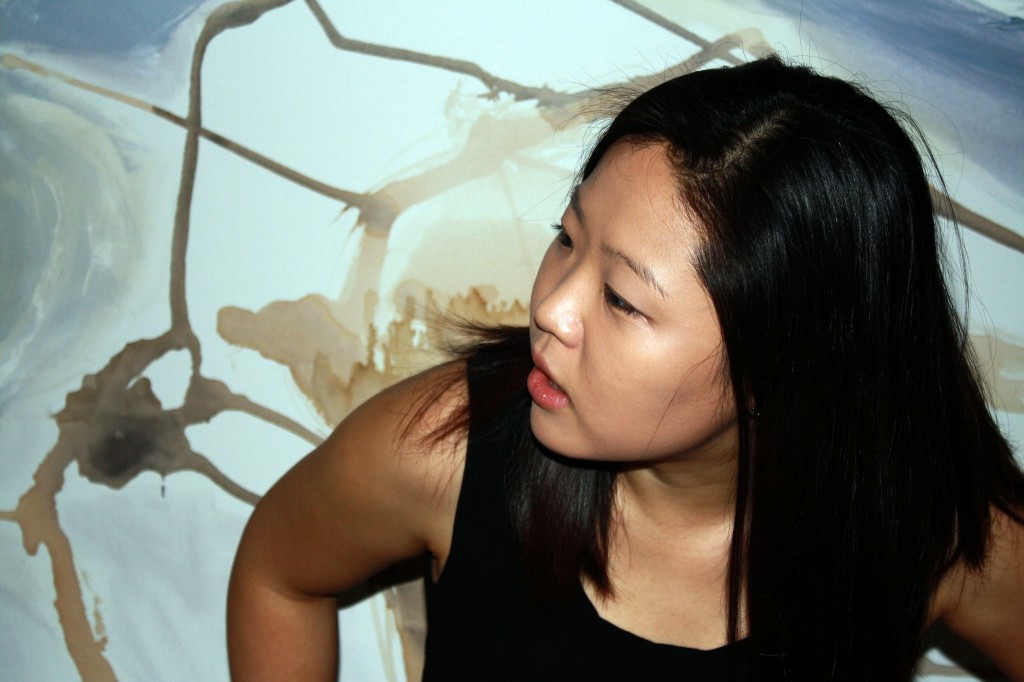
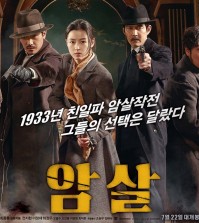

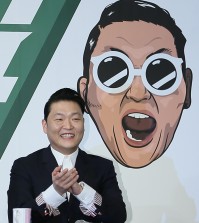
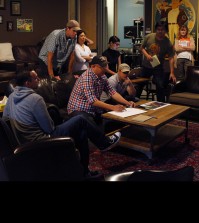

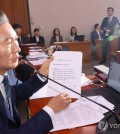
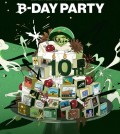
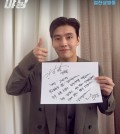

Pingback: Hibachi Restaurant In Bay Ridge Brooklyn New York | Restaurant Searcher - Paris
Pingback: 1 Bedroom Apartments For Rent In Bay Ridge Brooklyn | Lease your Home
Pingback: Walk In Clinics In Bay Ridge | baby - children hospitals
Pingback: Japanese Language School Atlanta | try - learn spanish online
Pingback: Japanese Language School In California | books - learn spanish online
Pingback: Pacific Language School Tokyo | try - learn spanish online
Pingback: Bell Language School Brooklyn | courses -online language school
Pingback: How To Ask A Girl Out In Korean | Fast Get Money
Pingback: Japanese Language School Atlanta | English
Pingback: Bell Language School Vacancies | learn languages online
Pingback: Bell Language School Vacancies | group - video language course
Pingback: Walk In Clinics In Bay Ridge | top - ivf clinics
Pingback: Bell Language School Vacancies | read - online teachers
Pingback: Korean Language School Atlanta | locations - american language school
Pingback: Korean Language School Atlanta | german - language teachers
Pingback: Japanese Language School Atlanta | spanish -learn languages online
Pingback: Barnard Babysitting Rates | find a nanny
Pingback: Barnard Babysitting Rates | read - babysitter reviews
Pingback: Apartments For Rent In Busan South Korea | Commercial Estate Wiki
k
November 19, 2016 at 3:08 PM
Latest Topics | ZDNet
define treason according
December 7, 2016 at 8:47 PM
Agribusiness — Home – allAfrica.com